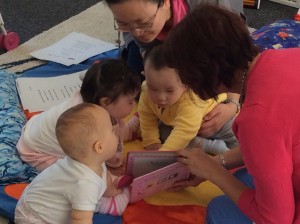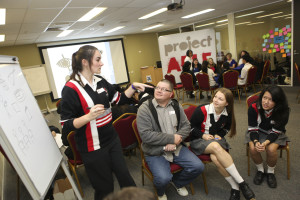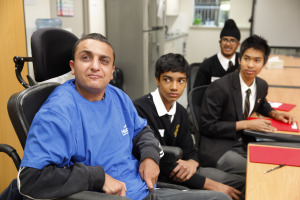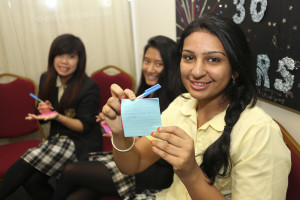As another school term draws to a close, we would like to thank the over 350 students from across NSW who attended a projectABLE workshop in Term 3. One such school group was Sutherland Shire Christian School (SSCS). The article below by Katelyn Anderson (Year 10) was first featured in their school newsletter. Pictures are from some of Term 3’s newest projectABLE alumni. 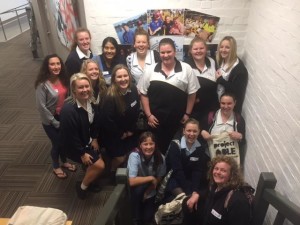
…………………………………….
On the 6 August seven year 10 students had the privilege of travelling to Northcott in Parramatta to take part in a program called projectABLE. This program informs students about careers in the disability sector and gives a better understanding of what it is like living with a disability.
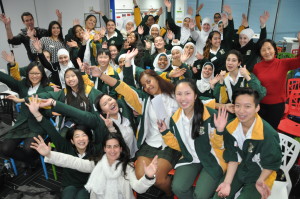 Participant Jasmin Cochrane said, “The best thing I learnt from projectABLE was how individuals with disability view the world and what I could do to help them live a more independent quality of life.”
Participant Jasmin Cochrane said, “The best thing I learnt from projectABLE was how individuals with disability view the world and what I could do to help them live a more independent quality of life.”
This program was really beneficial as it had a number of people who worked in the disability sector explain their career and what qualifications we would need at TAFE and University on the job
training.
Breanna-Jade Hodge said,
“I knew that I wanted to work in disability before I left but I wasn’t quite sure what jobs were available. Now I have a better understanding and I am even more eager than before and surer that I would like to go in this direction as a career post-school.”
This program was not only informative but interactive. We participated in activities that would help us better understand the difficulties of living with a particular disability such as having a visual or hearing impairment. Some of the activities included learning sign language, describing to a partner a shape for them to draw without them seeing it and relying only on the feel of an item to guess what it is.
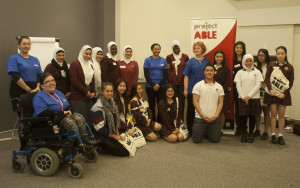 One of the most beneficial and amazing parts of the day was talking to two ladies, Shirley aged 26 and Olivia aged 20; both born with a disability. These ladies work part time for Northcott and we had the pleasure to talk with them about their life growing up with a disability, the challenges they have faced and what they like to do for activities.
One of the most beneficial and amazing parts of the day was talking to two ladies, Shirley aged 26 and Olivia aged 20; both born with a disability. These ladies work part time for Northcott and we had the pleasure to talk with them about their life growing up with a disability, the challenges they have faced and what they like to do for activities.
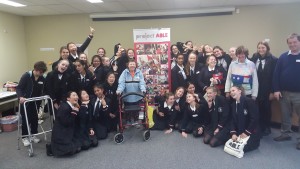 Shirley who has cerebral palsy communicated to us in an amazing way; she is unable to speak and so she spells out sentences using a tablet and one of her knuckles.
Shirley who has cerebral palsy communicated to us in an amazing way; she is unable to speak and so she spells out sentences using a tablet and one of her knuckles.
Lara Ishak said,
“I would definitely encourage students to do this program, it’s such a blessing and I loved every second. I think every student that goes would enjoy it too! It’s definitely not every day you have this opportunity to do something like this and it also gives you an idea of future careers and
post school options, even if it’s for a part time job!”
It was an amazing day!
…….
ITS NOT OVER YET! projectABLE workshops are continuing in Term 4.

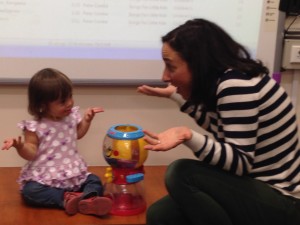
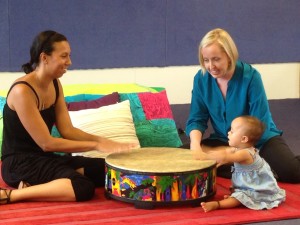 Working with children is important because in those early years children are still developing their sense of self, who they are in the world. And obviously the amount of learning that happens in those early years is massive. So much learning and development comes through play, so an important part of the role of an OT is using a play based approach to skill development. There’s a lot of intense wiring happening in the brain in those early years and when you’re able to support a child’s development at this stage it can have a huge impact. Most importantly, you’re connecting with the child’s sense of self, their belief in themselves and their place in the world. Who they are as a learner, a peer, a friend, a son or daughter.
Working with children is important because in those early years children are still developing their sense of self, who they are in the world. And obviously the amount of learning that happens in those early years is massive. So much learning and development comes through play, so an important part of the role of an OT is using a play based approach to skill development. There’s a lot of intense wiring happening in the brain in those early years and when you’re able to support a child’s development at this stage it can have a huge impact. Most importantly, you’re connecting with the child’s sense of self, their belief in themselves and their place in the world. Who they are as a learner, a peer, a friend, a son or daughter.